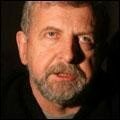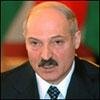Другие материалы рубрики «English»
-
 Milinkevich meets with Ukrainian and European politicians in Dublin
Milinkevich meets with Ukrainian and European politicians in Dublin
Alyaksandr Milinkevich, chairman of the Movement for Freedom, had meetings in Dublin on Thursday and Friday with the leaders of Ukrainian parties... -
 Lukashenka opposed to Moscow-based joint potash trader
Lukashenka opposed to Moscow-based joint potash trader
Belarus will not agree to establish a new joint trader with Russian potash producer Uralkali if it is based in Moscow...
- Opposition activist Paliyenka complains to Investigative Committee about mistreatment by police
- Penalties imposed on 15 executives in Minsk region over pay delays
- Myasnikovich tells ministers to have more active involvement in work on Eurasian Economic Union treaty
- Mahilyow Regional Court upholds denial of registration as candidate for Mahilyow City Soviet for local civil society activist
- Belarusian Olympic champion Ala Tsuper changes her mind about retiring
- Given Maidan protests, Belarusian opposition forces’ priority should be to prove that they want peaceful change, activist says
- Writer Svyatlana Aleksiyevich presents her new work at international book fair in Minsk
- Avel director happy with filming conditions in Minsk
- First car confiscated from repeat DUI offender in Minsk auctioned off
- Election commissions register 16,021 nomination groups
English
EU foreign ministers: Milosevic pales in comparison
The foreign ministers of Sweden, the Czech Republic and Poland on December 23 published a strongly worded statement on Belarus’ most-recent presidential election and the brutal dispersal of Sunday’s anti-Lukashenka demonstration that took place in Minsk after the closure of the polls, BelaPAN said.
 “There can be no business-as-usual between the European Union and Belarus’ president, Aleksandr Lukashenko, after what has happened since the presidential election in Belarus last Sunday,” reads the joint statement of Carl Bildt, Karel Schwarzenberg and Radoslaw Sikorski, foreign ministers, respectively, of Sweden, the Czech Republic and Poland.
“There can be no business-as-usual between the European Union and Belarus’ president, Aleksandr Lukashenko, after what has happened since the presidential election in Belarus last Sunday,” reads the joint statement of Carl Bildt, Karel Schwarzenberg and Radoslaw Sikorski, foreign ministers, respectively, of Sweden, the Czech Republic and Poland.
In recent months, the hope grew that the Belarusian leader could be taken seriously, but then everything changed, the ministers say.
“Mr. Lukashenko probably understood that he would not get the required 50 percent of the votes needed to avoid a humiliating second round against a single opposition candidate,” they say. “All independent exit polls gave him significantly less than this. While the voting proceeded in an orderly fashion, the counting of the votes turned into a charade. The report of the independent observers assessed the counting as ‘bad’ or ‘very bad’ in nearly half the polling stations they could observe, and it is not unreasonable to assume that it was even worse in the others. It was obvious that there were orders not to count the votes, but to deliver a predetermined result.”
“But worse was to follow,” the ministers say.
“The combination of vote rigging and outright repression makes what Slobodan Milosevic tried to do in Serbia in 2000 pale in comparison,” they stress.
“Opposition candidates were beaten, dragged away and detained. Hundreds of campaign workers were also rounded up and taken to prison. Summary trials produced sentences without any basis in facts. Political prisoners have become the new reality. Repression is the stated policy.
Europe has not seen anything like this in years,” the ministers said.
“The forces of repression might carry the day, but the wounds in society will not heal, and a siege regime will clearly not survive forever,” they say. “Prospects of money from the West to save a deteriorating economic situation have in all probability gone up in smoke. Investors will be wary of a country that has so spectacularly shown its contempt for the law.”
“Continued positive engagement with Mr. Lukashenko at the moment seems to be a waste of time and money. He has made his choice — and it is a choice against everything the European Union stands for,” the ministers stress.
The ministers call on the EU to deepen engagement with the democrats of Belarus and those inside the government who disapprove of the "fateful turn their country has taken." “They must not be abandoned or betrayed as their country enters what might be a new dark era,” they say.
“Europe must not be mute,” they stress.




В настоящее время комментариев к этому материалу нет.
Вы можете стать первым, разместив свой комментарий в форме слева